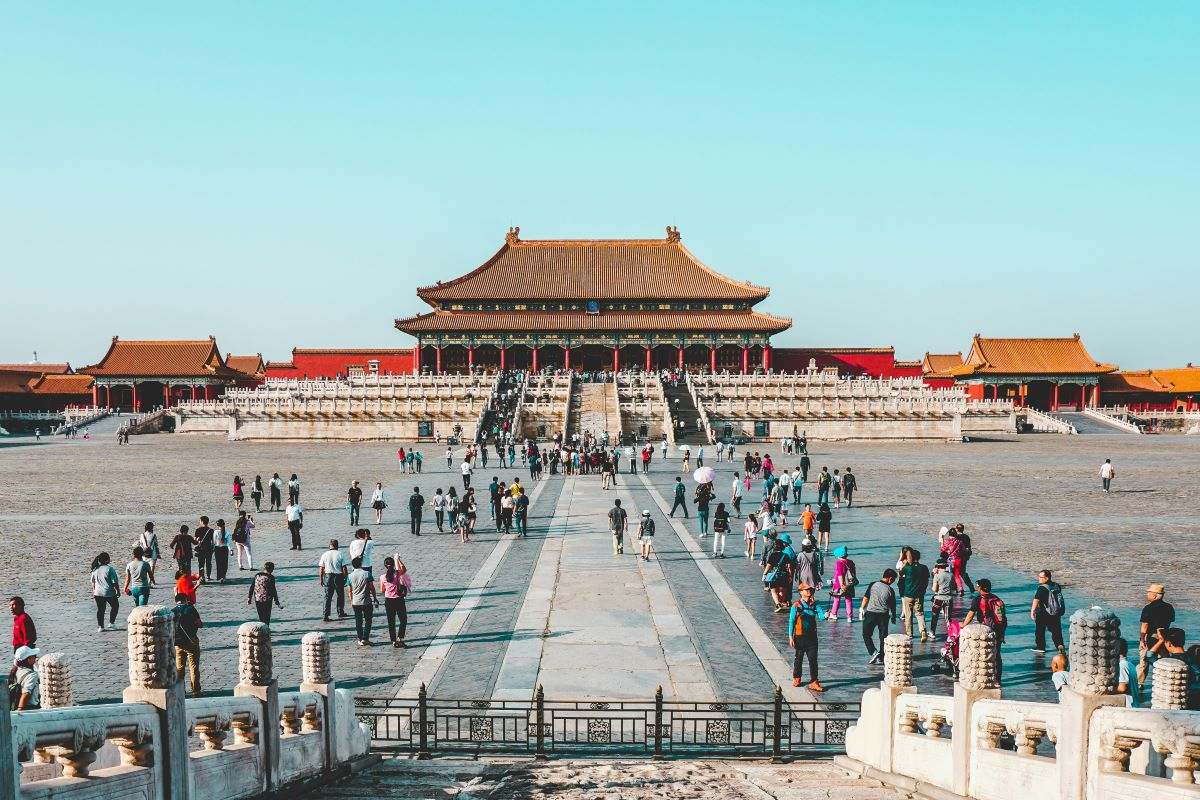This article is also available in Italian / Questo articolo è disponibile anche in italiano
If Trump imposes tariffs, China will shake hands and make deals. Without much fanfare but swiftly, Xi Jinping and his ministers are pressing ahead with efforts to strengthen international economic cooperation with both longstanding and new partners.
In the past week alone, and particularly over the weekend of 28–30 March, there has been a trilateral summit between the Chinese Trade Minister and his counterparts from South Korea and Japan, the signing of an economic agreement with Bangladesh, an important international forum on Asia, and, in a rather exceptional move, a meeting between President Xi and around forty CEOs from some of the world’s most influential companies, including from the United States.
So, let’s take a closer look at this intense week for China.
The Boao Forum for Asia: a megaphone for multilateralism
Let’s begin with the Boao Forum for Asia, which concluded on Friday, the 28th of March.
Dubbed the “Asian Davos”, the BFA is a high-level economic conference that brings together governments, businesses, and academics. Since 2002, it has been held annually on the island of Hainan, China’s southernmost province. If the forum initially involved only Asian countries, today, it has become a platform for global discussion, with delegations from more than 60 nations— including the United States and Italy—attending this edition.
This year’s theme was Asia in the Changing World: Towards a Shared Future, with multilateralism at the heart of discussions. This is hardly surprising: the call for a new (or renewed) multilateralism, in contrast to the growing unilateralism promoted by US President Trump, has been a consistent feature of speeches and official statements from Xi Jinping and his ministers for some time now.
Of course, the significance of this message is amplified when voiced at a forum that brings together all Asian economies, which together, according to the BFA’s 2025 report, collectively account for 48.6% of global GDP and have a real GDP growth rate of 4.5%. “Asia—wrote the Global Times—has become the core engine of global growth and a well-deserved stabilizing anchor for the world economy.” Former UN Secretary-General Ban Ki-moon, now President of the BFA, also noted that Asia is nowadays a leading voice for multilateralism, free trade, and globalisation.
And if Asia is a stabilising force for the world, then China is a stabilising force for Asia, said Chinese Vice Premier Ding Xuexiang. He then, naturally, reiterated the invitation to industries and businesses worldwide to invest in the modernisation of the People’s Republic and to seize the great opportunities offered by China’s development.
Xi Jinping meets with CEOs from all over the world
While lofty ideas and the future direction of global geopolitical balance were being discussed in China’s far south, at almost the same time, in the north of the country, Beijing played host to the elite of global industry.
During the annual China Development Forum on the 23rd and 24th of March, dozens of CEOs and representatives from the world’s largest companies and multinationals were invited to the capital for a special meeting with Xi Jinping.
On Friday, the 28th of March, in the Great Hall of the People, President Xi welcomed around forty chairmen and chief executives from companies such as FedEx, BMW, Mercedes-Benz, Saudi Aramco, Sanofi, AstraZeneca, Hitachi, and Toyota. The meeting had two key objectives: to reassure about the openness of the Chinese economy to international investments and collaborations and to present a united front against Trump’s tariffs, in order to protect supply chains and, by extension, the health of global industry.
Foreign companies, Xi reminded, “account for a third of China’s total imports and exports, a quarter of its industrial added value, and one-seventh of its tax revenue, creating over 30 million jobs.” They are, therefore, an active and essential part of the country’s modernisation process. That said, the Chinese president acknowledged—diplomatically—that “in recent years, foreign businesses have indeed encountered certain difficulties in their development in China”. Xi therefore, pledged not only to expand market access but also to ensure fairer treatment for foreign businesses operating in the People’s Republic, even going so far as to promise that “products manufactured in China by foreign businesses can participate in government procurement on an equal footing, in accordance with the law.”
Just days earlier, also in Beijing, China’s Minister of Commerce, Wang Wentao, met with Apple CEO Tim Cook. The Cupertino-based company has long maintained a strong—if at times contentious—relationship with China, so it is hardly surprising that, in such a delicate moment, Chinese authorities would seek to reinforce their ties. What is somewhat more striking, however, is the tone of the meeting. At least according to the official summary published on the Ministry’s website.
Wang and Cook discussed Sino-American economic and trade relations, almost as if the Apple CEO were acting as an envoy of the White House. Wang reiterated that “there are no winners in a trade war” and stated that “China is willing to work with the United States to create a more stable political environment for businesses through equal dialogue.” Cook, for his part, assured that Apple “will continue to increase investment in China’s supply chain, as well as in research and development” and added that “Apple is willing to play an active role in the stable and healthy development of Sino-American economic and trade relations.” If there were ever any doubt, Big Tech diplomacy is taking on an increasingly central role in global geopolitics.
A few deals with the rest of Asia, and an invitation to Europe
China’s packed diplomatic agenda on Friday culminated in the signing of an economic agreement with Bangladesh. The country’s interim prime minister, Nobel Peace Prize laureate Muhammad Yunus, was also in Beijing, where he met with Xi Jinping to formalise a cooperation pact along with eight memorandums of understanding covering culture, media, healthcare, and sport. China pledged 2.1 billion in investments and loans, with Xi stating that interest rates on these loans could be reduced. The two nations also agreed to begin negotiations on a free trade agreement.
Even more noteworthy was the trilateral summit between China, Japan, and South Korea. On Sunday, the 30th of March, the trade ministers of the three nations met in Seoul to intensify efforts toward a free trade agreement—talks that have been ongoing since 2012. It marked the first trilateral economic dialogue between Beijing, Tokyo, and Seoul in the last five years, and also for this event, the “credit” goes to Donald Trump. As members of the Regional Comprehensive Economic Partnership (RCEP), the three countries, despite territorial disputes in the East China Sea and the Yellow Sea, are eager to strengthen regional trade ties in response to US tariffs.
Piecing together the events of recent days—and no doubt more will follow—it is clear that China has chosen a path of resilience in response to Trump’s trade policies. Yet one question remains unanswered, both for the Chinese (many analysts have written about it) and for us: why is Europe not seeking closer ties with Beijing?
The invitation has been on the table for some time and was reiterated in no uncertain terms on the 27th of March, during a meeting between China’s second Vice Premier, He Lifeng—in China they have more than one—and EU Trade Commissioner Maroš Šefčovič. As the Chinese Minister pointed out, 2025 will mark the 50th anniversary of diplomatic relations between China and the EU—an ideal opportunity, he suggested, to join forces “in resisting unilateralism and protectionism and safeguarding the multilateral trading system.”
Cover: Beijing, the Forbidden City, photographed by Ling Tang, Unsplash



